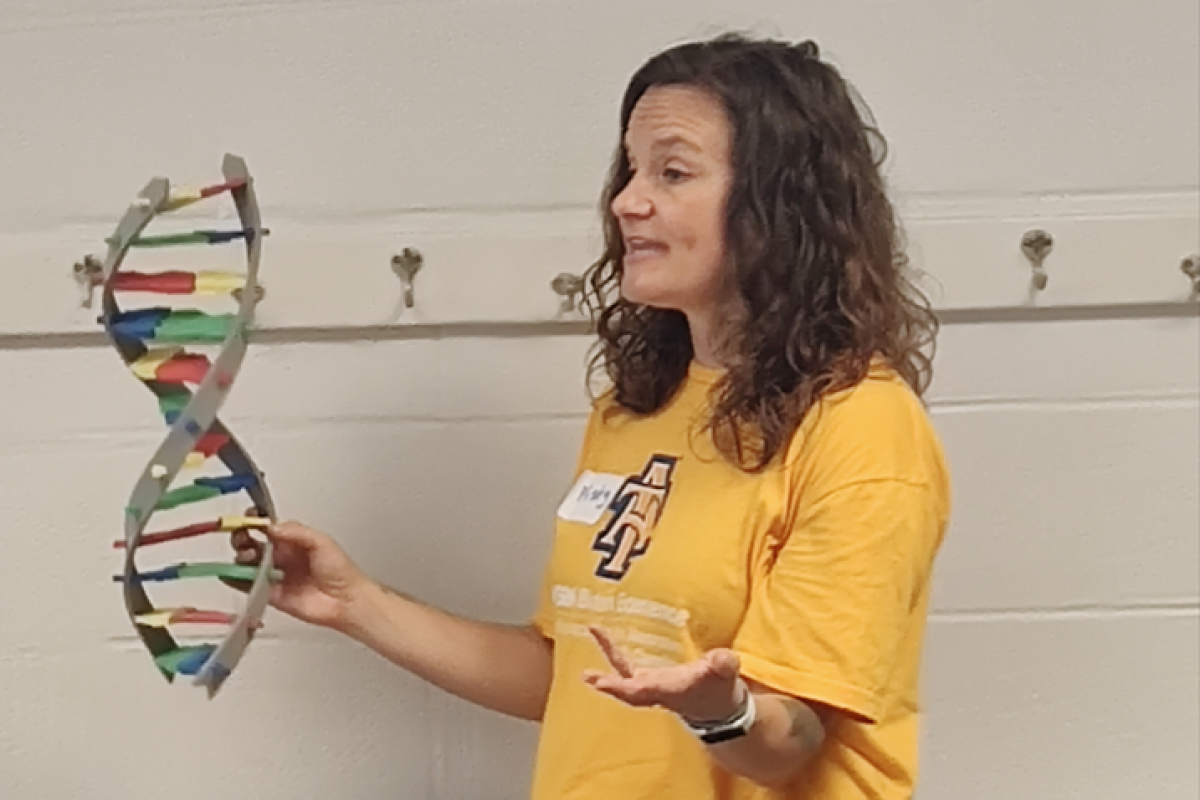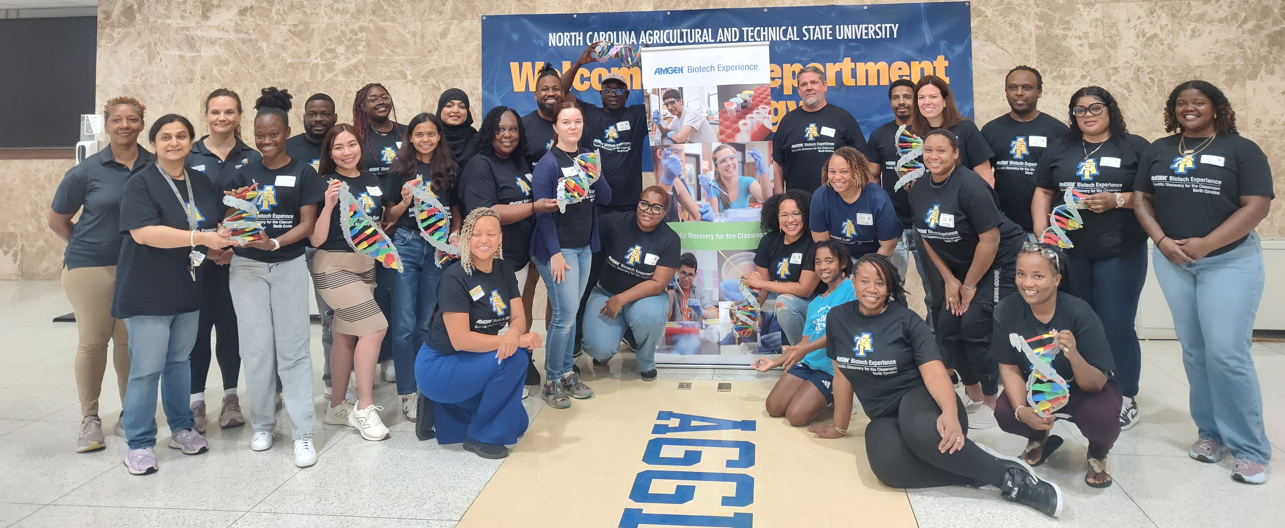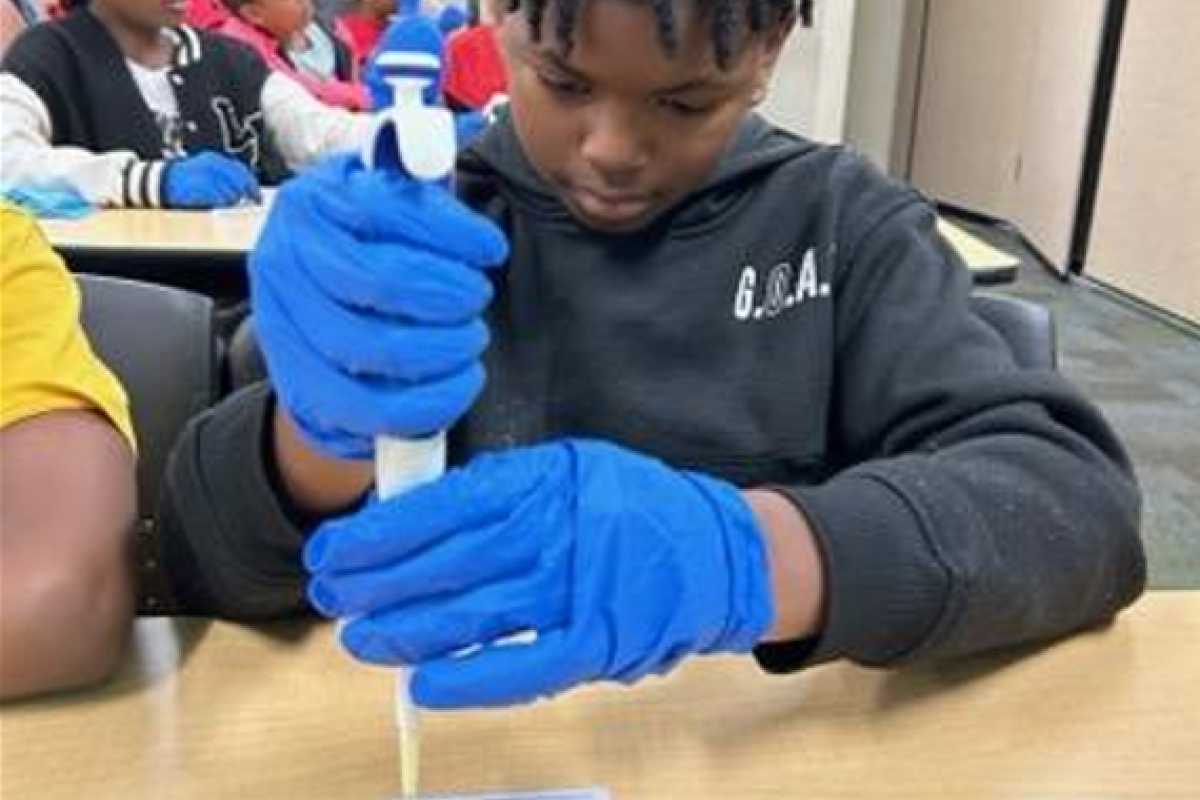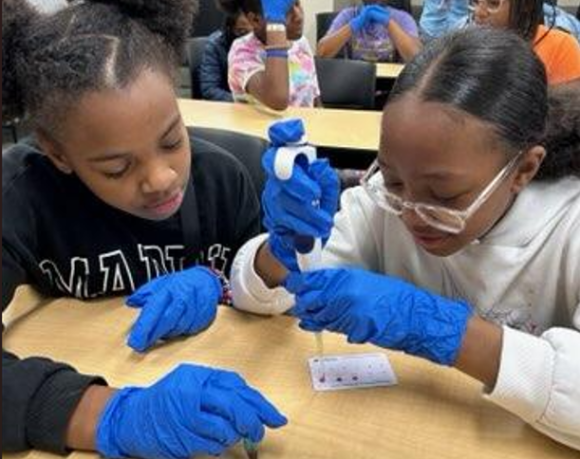In Greensboro, North Carolina, third graders don lab coats and gloves and are instantly transformed: Whereas moments before they were ordinary elementary students on a field trip, now they are scientists—seeing themselves in a new way that 8- or 9-year-olds seldom experience.
That is all in a day’s work for the ABE North Carolina (NC) team at North Carolina Agricultural and Technical State University (NCAT). In addition to giving science teachers the training and tools to conduct biotechnology-related labs in the classroom, ABE NC also regularly invites groups of students to their labs at the university.
The power of the visit is not just in the lab coats, says ABE NC Site Coordinator Misty Thomas; it’s in the full lab immersion. “These students are getting to come to campus, go into a college lab, and use college equipment, while having a real scientist there with them,” she says. “So, they actually see a scientist in front of them and what we look like and what we actually do, because I think most of us don't look anything like what their brains picture a scientist looks like.”

That representation, combined with the hands-on experience, is powerful in inspiring students to pursue science, especially at young ages, explains ABE NC Lab Technician Larriale Isiah. “We’re trying to reach students with real-world science experience at a young age,” she says. “There is research that supports the idea that if you don't catch them early, by the time they get to high school they may not be interested in biotechnology science by then.”
To that end, ABE NC offers several activities to empower students at grade levels K–12 in biotechnology, from field trips to classroom visits. For example, in June 2025, Isiah visited the Greensboro-area charter middle school Next Generation Academy to do mini labs, which included practicing using a pipette and working with mini-PCR. The event was part of the “Dream Makers Speakers series,” designed to expose students in grades 6–8 to different career pathways. The event was such a success, Isiah reported, that the teachers at Next Generation requested a field trip to NCAT for the fall—one of several planned in the upcoming months.
Indeed, demand for ABE NC activities has remained consistently high. In just the 3 years since the program began, the team has reached more than 1,000 students in the region. Thomas recalls that after advertising two professional development institutes in the summer of 2025—one geared for middle school teachers and one toward high school teachers—more than 100 teachers applied, even though the university had space for only 24.

ABE NC has had an especially “overwhelming amount of middle school teachers” interested in the program, Thomas says. The team has taken care to modify activities for this younger age group, for example, offering fixed pipettes or doing electrophoresis with dyes. For the youngest participants, especially elementary students, the goal is primarily to get them excited about science, in contrast to the more content-based biotechnology approach at the high school level.
For Thomas, an associate professor of biology at NCAT, working with ABE NC is a labor of love. A PhD microbiologist, she was not interested in science until 12th-grade chemistry, where she “had one of the best teachers I ever had,” she recalls. “He was funny and charming and made chemistry fun and helped push me.” And similarly, when she went to college with a goal of being a chemistry teacher, she had an amazing biology teacher who changed her trajectory again toward research. “Having a good teacher makes every difference in what you like and what you don't like,” she says.
Thomas’s experiences have made her even more passionate about science education. “I love teaching, I love education, and I love being around teachers who are passionate about teaching and education,” she says. “That's why I really love this ABE program.”
Isiah, who has a background in biology and agricultural education, taught middle school science, and tutored students in science and math for years before joining ABE NC in 2023—following previous work in a food science lab—echoes these thoughts. “Interacting with the students and the teachers is what gets me excited,” Isiah says. “I love to see them grow and then eventually say, ‘Hey, this is something I desire to do.’”

Isiah and Thomas, eagerly awaiting the arrival of hundreds of students to their labs at NCAT in fall 2025, are excited to show them what science is really like and who scientists really are. The visits will include a single field trip with more than 170 middle schoolers—a challenge they are ready to take on. “When these kids come here, it's not just the man who looks like Einstein that's viewed as the crazy scientist,” Thomas says. “We have a good diversity of people, and it’s refreshing and encouraging for them to see that there are people who look like them, and they are scientists—and that being in a lab is fun!”
